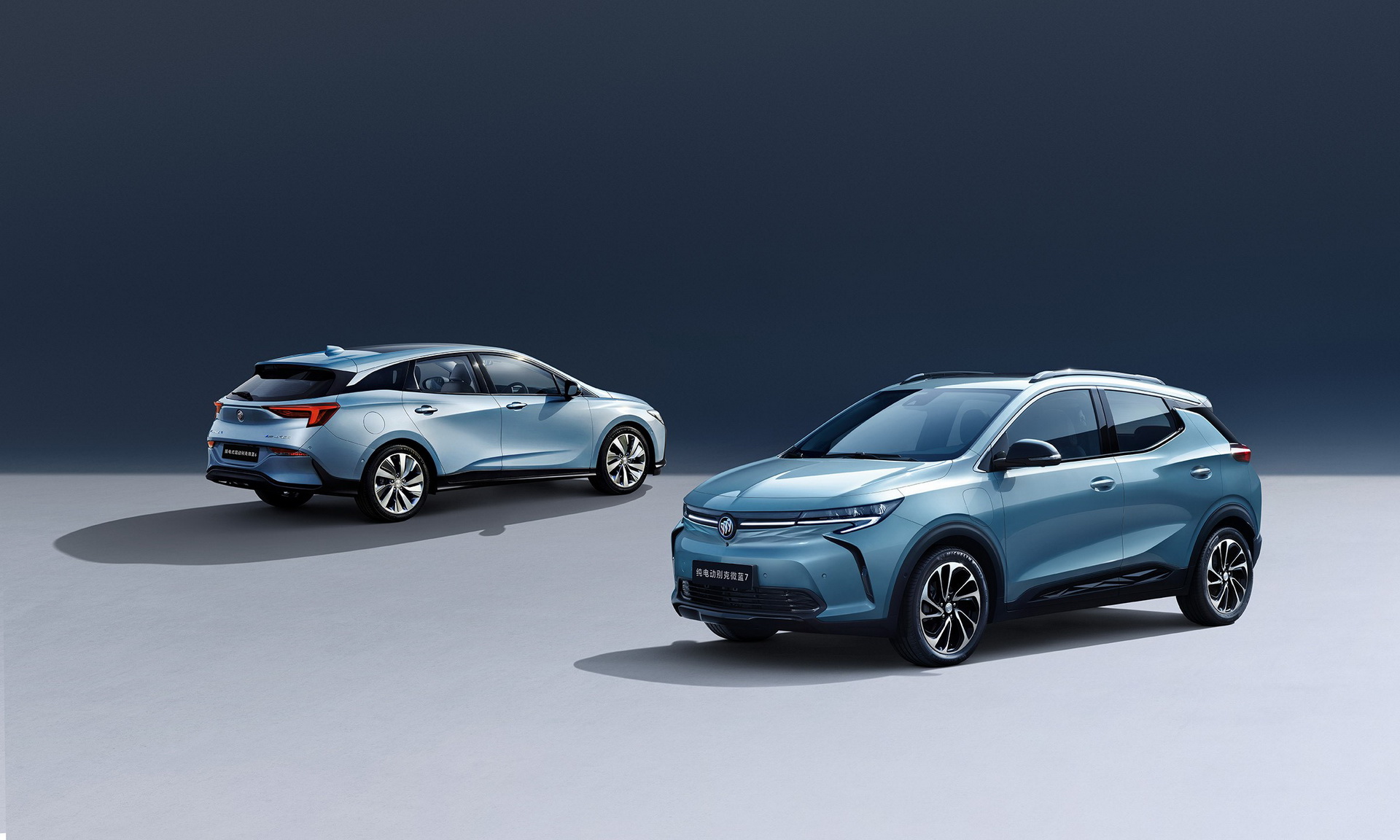Declining Sales In China: Are BMW And Porsche Losing Their Grip?

Table of Contents
The Chinese automotive market, once a goldmine for luxury brands like BMW and Porsche, is showing signs of significant slowdown. Recent sales figures paint a concerning picture: declining sales for these German automotive giants. This article delves into the potential reasons behind this downturn, analyzing the challenges and opportunities facing these iconic brands in the increasingly competitive Chinese market. We'll explore the shifting landscape, economic factors, and the strategies BMW and Porsche are employing to navigate this turbulent period.
The Shifting Landscape of the Chinese Luxury Car Market
The Chinese luxury car market is undergoing a dramatic transformation. Gone are the days of guaranteed success for established international brands. Two key factors are driving this change: the rise of domestic competitors and the evolution of consumer preferences.
Rise of Domestic Competitors
Chinese luxury car brands are rapidly gaining market share, challenging the dominance of established players like BMW and Porsche. Brands like Hongqi, Nio, and BYD are producing sophisticated, technologically advanced vehicles at competitive prices.
- Hongqi's HS7: This large SUV boasts impressive features and a strong nationalistic appeal, resonating with Chinese consumers.
- Nio's ET7: This electric sedan offers cutting-edge technology, including advanced driver-assistance systems and battery swap technology.
- BYD's Tang: This electric SUV combines luxury features with competitive pricing and a strong reputation for reliability.
The market share growth of domestic brands is undeniable. Reports indicate a year-on-year increase of X% in the past year, directly impacting the sales of imported luxury vehicles. This surge highlights the increasing sophistication and competitiveness of the Chinese automotive industry.
Changing Consumer Preferences
Chinese consumer preferences are evolving rapidly. There's a significant shift towards electric vehicles (EVs), driven by government incentives, environmental concerns, and technological advancements. Furthermore, Chinese consumers are increasingly valuing sustainability, technological innovation, and advanced features.
- Advanced Driver-Assistance Systems (ADAS): Features like lane keeping assist, adaptive cruise control, and autonomous parking are highly sought after.
- Connectivity and Infotainment: Seamless smartphone integration, advanced navigation systems, and high-quality audio are crucial selling points.
- Social Media Influence: Online reviews, social media influencers, and viral marketing campaigns significantly shape consumer perception and purchasing decisions.
The influence of social media and online platforms cannot be overstated. Chinese consumers are highly informed and rely heavily on online reviews and social media recommendations before making a significant purchase like a luxury car.
Economic Factors and Market Uncertainty
Beyond market shifts, broader economic factors and geopolitical uncertainties are also impacting luxury car sales in China.
Economic Slowdown and Geopolitical Tensions
China's economic growth has slowed in recent years, impacting consumer spending on discretionary items like luxury vehicles. Furthermore, global geopolitical tensions and trade uncertainties create an environment of economic instability, influencing consumer confidence and purchasing decisions.
- GDP Growth: A slowdown in China's GDP growth directly correlates with reduced consumer spending power.
- Trade Wars and Sanctions: International trade disputes and sanctions can impact the availability and pricing of imported luxury cars.
- Inflation and Rising Interest Rates: Increased inflation and higher interest rates make financing luxury purchases more challenging.
These economic headwinds directly impact the purchasing power of Chinese consumers, leading to a decline in demand for luxury goods, including high-end automobiles.
Increased Import Tariffs and Regulations
Import tariffs and stricter regulations on imported vehicles have increased the cost and complexity of bringing luxury cars into the Chinese market. This affects profitability and market competitiveness for brands like BMW and Porsche.
- Increased Pricing: Higher import tariffs directly translate to higher prices for consumers, reducing affordability.
- Supply Chain Disruptions: Stricter regulations can lead to delays and disruptions in the supply chain, impacting availability.
- Compliance Costs: Meeting stringent emission standards and other regulations increases the cost of doing business in China.
BMW and Porsche's Response to the Challenges
BMW and Porsche are actively responding to the challenges they face in the Chinese market. Their strategies focus on market revitalization, investment in electrification, and adapting to changing consumer preferences.
Strategies for Market Revitalization
Both brands are implementing various strategies to regain market share. This includes product diversification, localization efforts, and targeted marketing campaigns.
- Localized Models: BMW and Porsche are introducing models specifically designed or adapted for the Chinese market, addressing local preferences and needs.
- Marketing Campaigns: Targeted marketing campaigns leverage social media and influencer marketing to reach Chinese consumers effectively.
- Enhanced Customer Service: Improving customer service and after-sales support is crucial for building brand loyalty in a competitive market.
Investment in Electrification and Technological Innovation
Investment in electric vehicle development and technological innovation is crucial for remaining competitive. Both brands are heavily investing in this area.
- Electric Vehicle Models: BMW and Porsche are expanding their range of electric vehicles tailored to the Chinese market's demand.
- Technological Partnerships: Collaborations with Chinese technology companies are crucial for access to local expertise and technological advancements.
- Software and Connectivity: Investing in advanced software and connectivity features is essential to meet the high expectations of Chinese consumers.
Conclusion
The decline in sales of BMW and Porsche in China reflects a significant shift in the luxury automotive landscape. The rise of domestic competitors, evolving consumer preferences, and economic factors are all contributing to this trend. Both brands must adapt their strategies to regain market dominance, focusing on electrification, localization, and a deep understanding of the ever-changing needs of the Chinese consumer. Their success hinges on their ability to respond effectively to these challenges.
Call to Action: Want to stay informed about the evolving dynamics of the Chinese luxury car market and the strategies employed by BMW and Porsche? Keep reading our analysis on declining sales in China and learn more about the future of these iconic brands. Subscribe to our newsletter for future updates on declining sales in China and the automotive industry.

Featured Posts
-
 Orix Stake Greenko Founders In Pursuit Of New Acquisition Deal
May 17, 2025
Orix Stake Greenko Founders In Pursuit Of New Acquisition Deal
May 17, 2025 -
 Canadian Honda Plant A Boon From Us Tariffs
May 17, 2025
Canadian Honda Plant A Boon From Us Tariffs
May 17, 2025 -
 Securing Rare Earth Minerals Avoiding A New Cold War
May 17, 2025
Securing Rare Earth Minerals Avoiding A New Cold War
May 17, 2025 -
 Chinas Automotive Market Challenges And Opportunities For Brands Like Bmw And Porsche
May 17, 2025
Chinas Automotive Market Challenges And Opportunities For Brands Like Bmw And Porsche
May 17, 2025 -
 Lynas The First Heavy Rare Earths Producer Outside China
May 17, 2025
Lynas The First Heavy Rare Earths Producer Outside China
May 17, 2025
Latest Posts
-
 Comprehensive Moto News Gncc Mx Sx Flat Track And Enduro Coverage
May 17, 2025
Comprehensive Moto News Gncc Mx Sx Flat Track And Enduro Coverage
May 17, 2025 -
 Your Guide To Moto News Gncc Mx Sx Flat Track And Enduro Racing
May 17, 2025
Your Guide To Moto News Gncc Mx Sx Flat Track And Enduro Racing
May 17, 2025 -
 Get The Scoop Moto News From Gncc Mx Sx Flat Track And Enduro Events
May 17, 2025
Get The Scoop Moto News From Gncc Mx Sx Flat Track And Enduro Events
May 17, 2025 -
 Motocross News Gncc Mx Sx Flat Track And Enduro Racing
May 17, 2025
Motocross News Gncc Mx Sx Flat Track And Enduro Racing
May 17, 2025 -
 All The Moto News You Need Gncc Mx Sx Flat Track And Enduro
May 17, 2025
All The Moto News You Need Gncc Mx Sx Flat Track And Enduro
May 17, 2025
